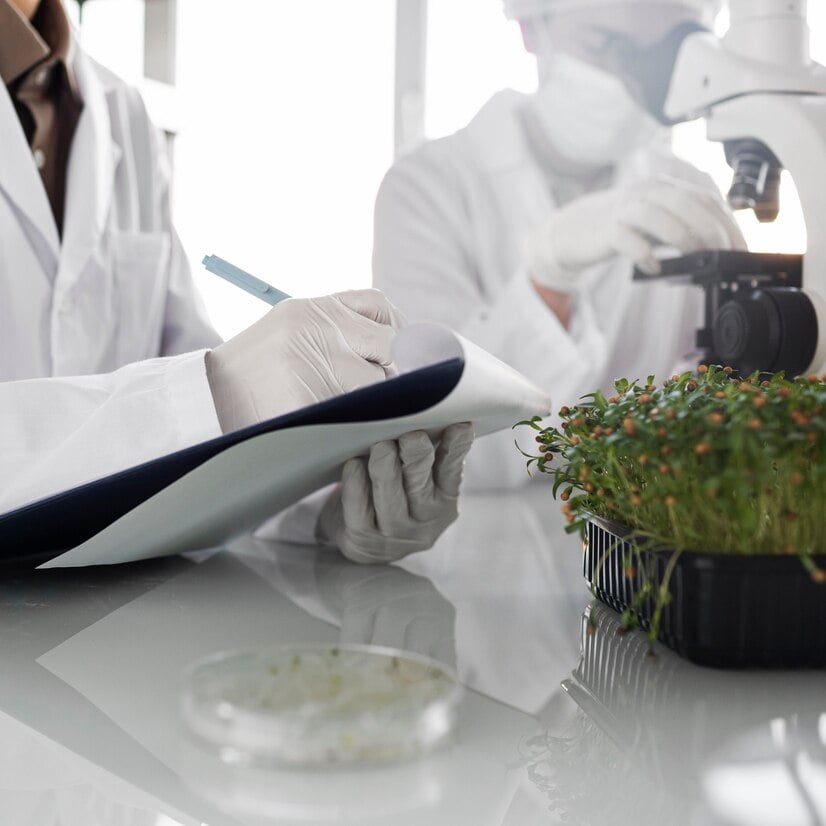
Synthetic biology is a potent instrument that has emerged from the confluence of biology and technology, which the world is using to tackle urgent environmental problems. This new area of study combines engineering with molecular biology to create artificial living things that can perform certain tasks. With its novel approaches to waste management and renewable energy generation, synthetic biology has enormous promise as a tool for resolving pressing global sustainability concerns.
Making Bio-Based Components:
As a long-term replacement for plastics and other synthetic materials, bio-based materials have been developed with the help of synthetic biology. Scientists are figuring out how to get microbes to make plastics that break down naturally, which will lead to more sustainable goods and less trash in the ocean. Synthetic biology's use in materials science has the ability to transform industries and reduce the environmental impact of traditional materials across a wide range of products, including consumer goods and packaging.
Making Biofuels and Using Renewable Power:
We must move away from fossil fuels if we want to live in a sustainable future. Microbes that can effectively transform biomass into biofuels may be designed with the help of synthetic biology. Researchers are making strides toward cleaner, renewable energy by improving metabolic pathways and increasing the efficiency of microbial fuel generation. In addition to lowering emissions of greenhouse gases, creating bio-based alternatives to conventional fuels helps build a more sustainable and robust energy infrastructure.
Cleanup of Polluted Environments:
Designing microbes that can clean up pollutants and toxins is one of the creative options offered by synthetic biology for environmental remediation. Soil and water contaminants may be biologically remedied with the help of engineered bacteria and fungus. Environmental cleaning using synthetic biology shows potential for repairing ecosystems and reducing the long-term impacts of human activity, whether it's from oil spills or industrial waste.
Efficient Farming with Long-Term Sustainability in Food Production:
Precision farming and environmentally friendly food production are two areas where synthetic biology is causing waves of change in the agricultural sector. A more resilient and sustainable agricultural system may be possible with the help of genetically modified crops that are more resistant to pests and diseases, better absorb nutrients, and have the ability to produce more food. Another possible solution to the environmental problems caused by conventional cattle farming is the creation of new protein sources, such as meat grown in laboratories or proteins produced by microbes.
Concerns and Difficulties with Ethics:
Despite the enormous promise of synthetic biology for the development of long-term solutions, serious thought must be given to the associated hazards and ethical concerns. Many worry about the ecological effect and unforeseen repercussions of intentionally releasing genetically modified organisms into the ecosystem. Responsible research and implementation of synthetic biology applications need ethical frameworks and regulatory mechanisms.
In summary:
When it comes to solving the complicated problems of sustainability, synthetic biology is at the front of scientific innovation, providing chances never before seen. A more sustainable future may be within reach thanks to synthetic biology's potential uses in fields as diverse as bio-based products, renewable energy, and environmental remediation. Synthetic biology has the potential to be a game-changer in our fight for a more sustainable and resilient planet, but only if researchers strike a balance between pushing the boundaries of technology and being mindful of ethical concerns.
